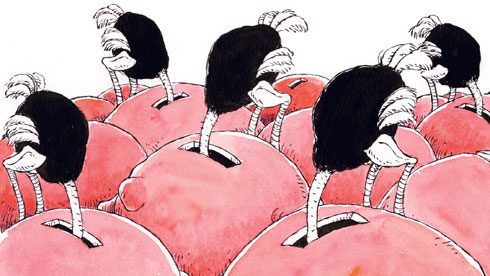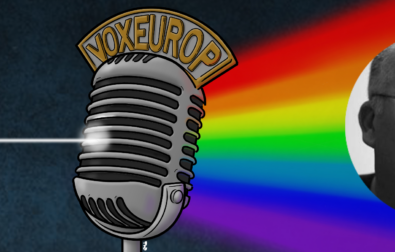Has Europe finally decided to make a stand for intelligence and mutual trust? Hopes that this is the case have been inspired by the European Commission’s surprise decision to grant France an additional two years in which to rein in its public spending deficit to less than 3 per cent of GDP. The target no longer has to be achieved in 2013, or indeed in 2014, but not until 2015.
In the runup to the announcement, Paris was hoping for a more modest postponement of one year, once it had given notice that it would not able to respect the commitment undertaken by Nicolas Sarkozy and later confirmed by François Hollande.
However, the Commissioner for Economic and Monetary Affairs, Olli Rehn, decided otherwise. Having judged that the effort required to stay on course for a 3 per cent deficit from next year was on a scale too great to be credible, he postponed the deadline until 2015 so as to ensure that hopes for recovery would not be nipped in the bud. In exchange, he demanded that the French government accelerate its efforts to push through reforms and to reduce public spending.
The Commission and Europe’s member states have finally put an end to a role playing game which has undermined any attempt to ensure good governance of the economic and monetary Union, and brought the euro to the brink of disaster.
Starting with a ‘stupid’ period
To cite former Commission president Romano Prodi the implementation of the stability pact began with a “stupid” period. To establish its power, Brussels sought to apply accountancy rules, which as early as 2003, EU states — read France and Germany — took the opportunity to ignore. Intelligently, in the case of Gerhard Schröder, who took advantage of added leeway to reform Germany, and in a more insouciant manner in the case of Jacques Chirac, who hurriedly set about doing nothing.
In the wake of their suspension in the years of crisis, the same rules ushered in an era marked by tolerated deceit, in which all parties made promises they could not keep. It was in this context that the Commission and François Hollande claimed for months that France would post a deficit of less than 3 per cent in 2013 — an assertion that enabled the Commission to save face while allowing Paris to lay claim to the status of model student.
This little game has been rendered unsustainable now that Europe is embroiled in a quarrel over conflicting doctrines, in which the partisans of nudging the steering wheel to take into account the real impact of policies (notably France and the IMF) have squared off against the proponents of austerity (Germany and the Commission). The former are highlighting how successive austerity packages contribute to economic recession, but they remain unable to convince their adversaries, who believe that such arguments are simply a clever pretext to put off necessary efforts. As a result of this dispute, the implementation of reforms and the drive avoid recession were both under threat.
In giving up its fetishistic insistence on a 3 per cent deficit, the Commission has decided to put an end to a game where all sides were bound to lose, and taken a politically clever and economically wise decision.
Was this article useful? If so we are delighted!
It is freely available because we believe that the right to free and independent information is essential for democracy. But this right is not guaranteed forever, and independence comes at a cost. We need your support in order to continue publishing independent, multilingual news for all Europeans.
Discover our subscription offers and their exclusive benefits and become a member of our community now!












